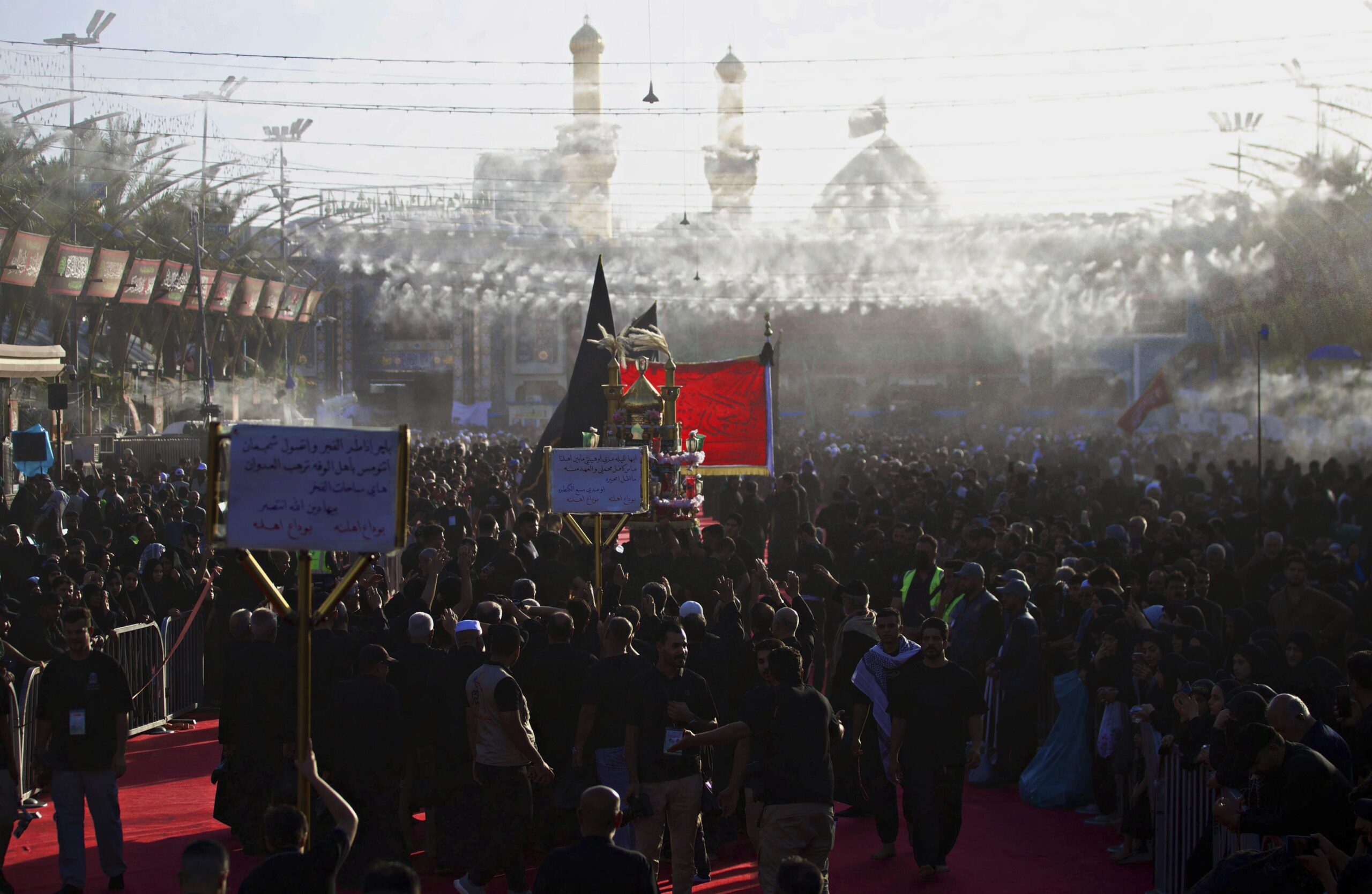
BAGHDAD (AP) — Tens of thousands of pilgrims arrived in the Iraqi city of Karbala on Saturday ahead of Ashoura, the holy day on which Shiite Muslims commemorate the martyrdom of Imam Hussein, grandson of the Prophet Muhammad.
The annual pilgrimage is one of the largest religious events in the Shiite world.
Ashoura holds deep religious and historical significance for Shiites, marking the 680 AD Battle of Karbala, in which Imam Hussein, along with his family and companions, was killed after he refused to pledge allegiance to the Umayyad caliphate, cementing the schism between Sunni and Shiite Islam. For Shiites, the commemoration has come to symbolize resistance against tyranny and injustice.
The event on Sunday comes in the wake of unprecedented regional escalation, following the recent Israel-Iran war, as well as other dramatic developments including the fall of Syria’s former president Bashar Assad — an ally of Iran — in December and the killing of Hassan Nasrallah, longtime leader of the Lebanese Shiite militant group Hezbollah.
The streets of Karbala were carpeted in red and lined with stations offering food and water to the pilgrims, who came from Iraq’s provinces and from abroad, including large numbers from Iran, the Gulf states, Lebanon and Pakistan.
Black-clad men, women, and children gathered around the shrines of Imam Hussein and his brother Abbas, performing traditional mourning rituals including chest-beating, elegies, and lamentations.
Although the occasion is religious in nature, some participants chanted against Israel and the United States as they processed through the streets of Karbala. Many banners also expressed support for the “ Axis of Resistance,” a cluster of Iran-backed factions and governments.
Iraqi Interior Minister Abdul Amir al-Shammari arrived in Karbala on Saturday and held an extended meeting at the operations command headquarters with senior security and intelligence officials and representatives of the Popular Mobilization Forces, a coalition of mostly Shiite militias that are officially under the command of the Iraqi military.
The interior ministry said in a statement that the session focused on tightening control over the city’s entrances and intensifying intelligence and field operations to safeguard the massive crowds.
Members of the Islamic State and other groups following an extreme interpretation of Sunni Islam, who consider Shiites to be apostates, have carried out attacks during Ashoura gatherings in Iraq and other countries in the region over the years.
“The resistance’s weapons are what protected Iraq, and they will not be surrendered—no matter how great the internal or external pressure,” Abu Ali al-Askari, a spokesperson for Iraq’s powerful Kataib Hezbollah militia, which is closely aligned with Iran, said during the commemorations.
His remarks came amid renewed national debate over the future role of armed factions in Iraq, especially in the wake of the recent regional escalations.
The government of northern Iraq’s semi-autonomous Kurdish region said in a statement Saturday that a drone had crashed overnight in an open area near the regional capital of Irbil and that “some groups affiliated with the Popular Mobilization Forces carry out such attacks with the aim of creating chaos.”
It called for the federal government in Baghdad “to put an end to these acts of sabotage and take the necessary legal action against their perpetrators.”
The Iraqi army responded in a statement that the accusation against the PMF was “unacceptable” and “issued in the absence of evidence” and said it could “provide hostile parties with justifications to undermine Iraq’s stability.”
